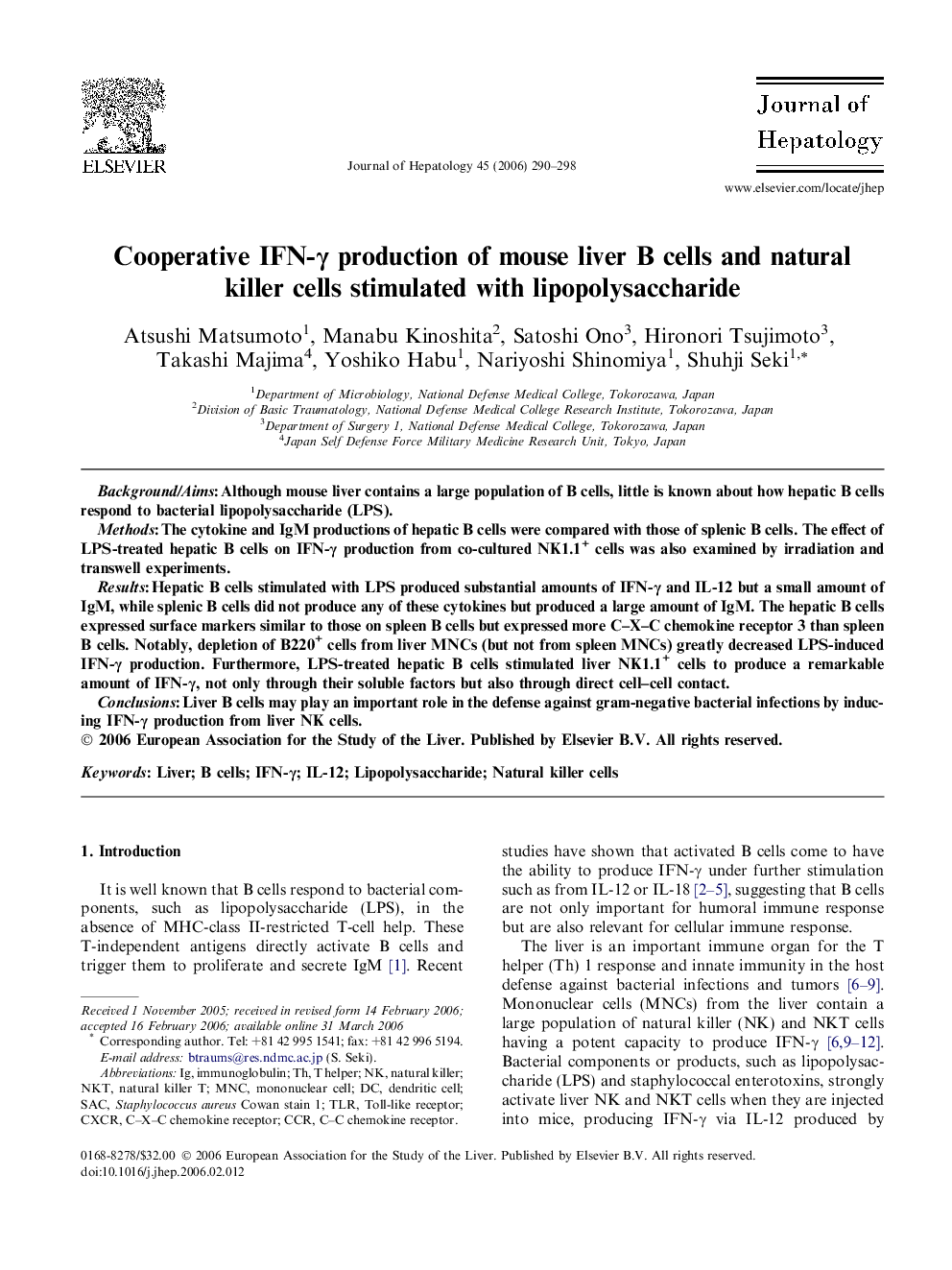| کد مقاله | کد نشریه | سال انتشار | مقاله انگلیسی | نسخه تمام متن |
|---|---|---|---|---|
| 3315184 | 1211244 | 2006 | 9 صفحه PDF | دانلود رایگان |

Background/AimsAlthough mouse liver contains a large population of B cells, little is known about how hepatic B cells respond to bacterial lipopolysaccharide (LPS).MethodsThe cytokine and IgM productions of hepatic B cells were compared with those of splenic B cells. The effect of LPS-treated hepatic B cells on IFN-γ production from co-cultured NK1.1+ cells was also examined by irradiation and transwell experiments.ResultsHepatic B cells stimulated with LPS produced substantial amounts of IFN-γ and IL-12 but a small amount of IgM, while splenic B cells did not produce any of these cytokines but produced a large amount of IgM. The hepatic B cells expressed surface markers similar to those on spleen B cells but expressed more C–X–C chemokine receptor 3 than spleen B cells. Notably, depletion of B220+ cells from liver MNCs (but not from spleen MNCs) greatly decreased LPS-induced IFN-γ production. Furthermore, LPS-treated hepatic B cells stimulated liver NK1.1+ cells to produce a remarkable amount of IFN-γ, not only through their soluble factors but also through direct cell–cell contact.ConclusionsLiver B cells may play an important role in the defense against gram-negative bacterial infections by inducing IFN-γ production from liver NK cells.
Journal: Journal of Hepatology - Volume 45, Issue 2, August 2006, Pages 290–298